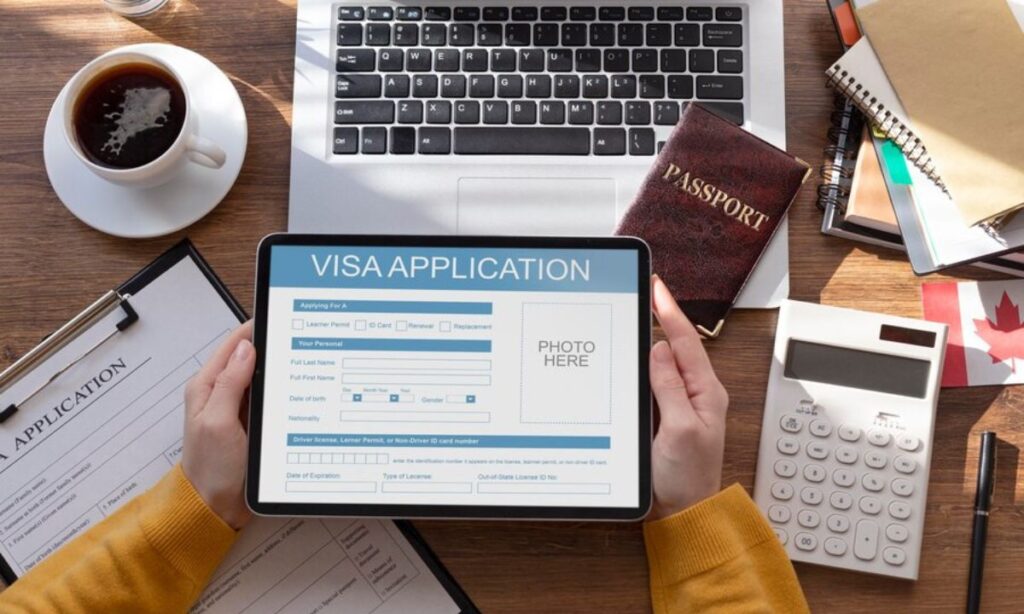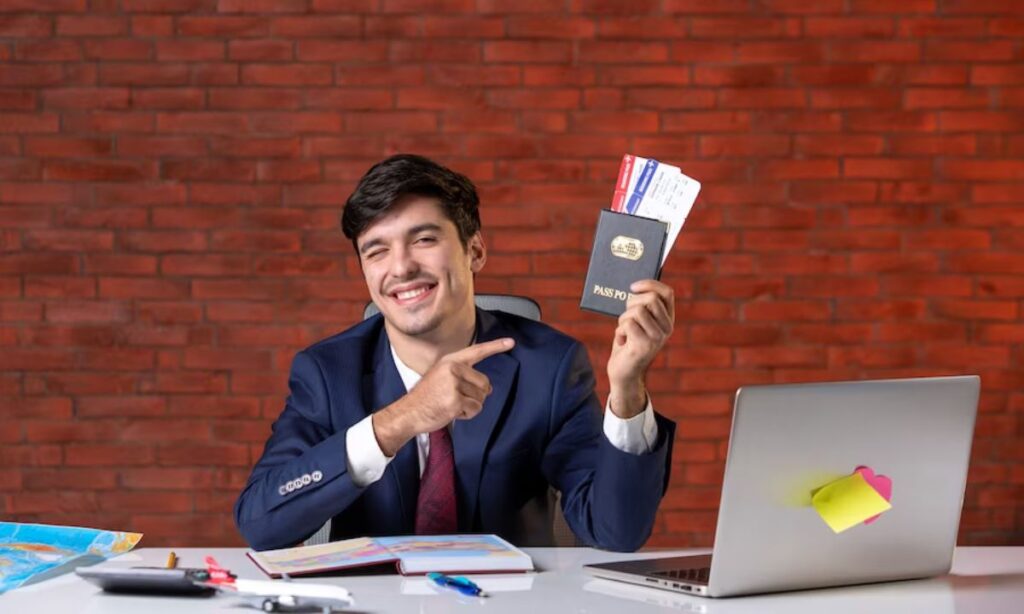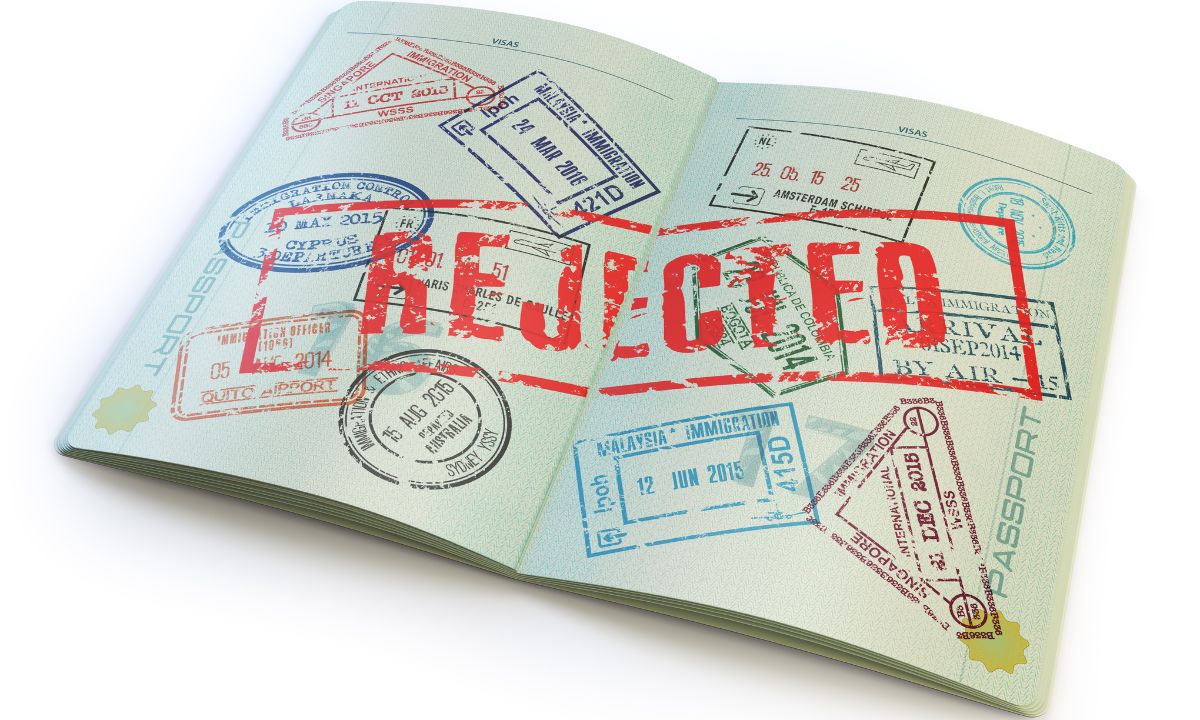Visa Rejections: Common Reasons and How to Appeal
Visas play a crucial role in international travel, allowing individuals to explore new destinations, study abroad, reunite with loved ones, or conduct business in foreign countries. However, visa rejections can be a significant setback, preventing you from realizing your travel or immigration plans. In this article, we will explore the common reasons for visa rejections and provide insights into the appeal process. Understanding these aspects is vital for anyone facing a visa rejection, as it can mean the difference between a denied application and a successful appeal.
Common Reasons for Visa Rejections
Incomplete or Incorrect Documentation

One of the most common reasons for visa rejections is incomplete or incorrect documentation. Embassies and consulates require applicants to submit a comprehensive set of documents, which can vary depending on the type of visa you are applying for. These documents include application forms, passports, passport-sized photographs, and supporting documents such as letters of invitation, proof of accommodation, and flight itineraries.
Learn more about How to avoid mistakes when applying for a visa
Missing or Inaccurate Forms and Supporting Documents
Embassies and consulates have strict requirements for the forms and documents they accept. Oftentimes, missing or incomplete forms can lead to visa rejections. Ensure that you carefully read and follow the instructions provided on the official website of the embassy or consulate. Failure to do so may result in a rejection.
In addition to missing documents, inaccuracies can also be a cause for concern. Ensure that all information provided in your application is accurate and consistent with your supporting documents. For example, if your passport information does not match the details on your application form, it can lead to a rejection.
Why do you need consulting services?
Failure to Provide Required Information
Failure to provide required information in your visa application is another common reason for rejection. This may include not filling out all sections of the application form, omitting crucial personal information, or neglecting to answer questions about your purpose of travel. It is essential to carefully review the application form and ensure that you have addressed all the necessary questions.
Insufficient Financial Proof

Financial stability is a critical factor in the visa application process, and insufficient financial proof is a common cause of rejection. Visa officers want to ensure that applicants have the means to support themselves during their stay in the destination country. Inadequate financial documentation can raise doubts about your ability to cover your expenses.
Lack of Evidence of Financial Stability
To demonstrate financial stability, you should provide bank statements, pay stubs, and other financial documents that prove you have the necessary funds to cover your trip. If your financial documents do not meet the required criteria or if they show inconsistencies, your application may be rejected.
Inadequate Proof of Funds for the Intended Stay
In some cases, applicants fail to provide sufficient evidence of funds for the duration of their stay. It’s crucial to calculate the estimated costs of your trip and ensure that you can cover expenses such as accommodation, food, transportation, and other necessities. If the visa officer believes you cannot sustain yourself during your visit, it can lead to a rejection.
Failure to Meet Eligibility Criteria
Visa applications come with specific eligibility criteria that applicants must meet. Failing to meet these criteria is a common reason for visa rejections. Eligibility criteria may include age restrictions, occupational requirements, or restrictions based on previous immigration history.
Ineligibility Based on Age, Occupation, or Other Criteria
Visa categories often have age restrictions or specific occupational requirements. For example, certain work visas may only be available to individuals with particular skills or qualifications. If you do not meet these criteria, your application is likely to be rejected.
Previous Visa Violations or Overstays
If you have previously violated visa terms or overstayed in a destination country, it can negatively impact your current visa application. Visa officers are concerned about applicants who may not comply with the terms of their visa, and past violations can lead to rejection.
Security and Health Concerns

Visa applications may be rejected on the grounds of security or health concerns. Visa officers are responsible for ensuring that individuals entering their country do not pose a security risk or a health threat to the public.
Criminal Record or Security Issues
Having a criminal record or being involved in activities that raise security concerns can result in visa rejections. Visa officers conduct background checks, and if your record shows criminal activities or security issues, your application is likely to be denied.
Lack of Required Vaccinations or Medical Clearance
Certain destinations have specific health requirements, such as mandatory vaccinations or medical clearances. Failure to meet these health requirements can lead to visa rejections. It’s essential to research and comply with the health regulations of your destination country.
Weak Ties to Home Country
Visa officers assess an applicant’s ties to their home country to determine the likelihood of returning after the visit. If you have weak ties to your home country, it can raise suspicions that you may overstay or not return at the end of your authorized stay.
Insufficient Evidence of Intent to Return to the Home Country
To demonstrate your intent to return to your home country, you can provide evidence of strong ties, such as stable employment, property ownership, family connections, or other commitments. If you cannot establish these ties convincingly, your application may be rejected.
Stronger Ties to the Destination Country
Having stronger ties to the destination country can also lead to visa rejections, as it may suggest that you intend to remain there rather than returning home. Visa officers carefully evaluate the strength of your connections to both your home country and the destination.
The Visa Appeal Process

Understanding the visa appeal process is essential if your application has been rejected. It provides you with an opportunity to address the issues that led to the rejection and present a stronger case for approval.
Understanding the Rejection Notice
When your visa application is rejected, you will receive a rejection letter from the embassy or consulate. It is crucial to carefully review this letter, as it will outline the specific reasons for the rejection. Understanding the rejection notice is the first step in the appeal process.
Reviewing the Rejection Letter
The rejection letter will specify the grounds for the rejection, whether it’s related to incomplete documentation, financial proof, eligibility criteria, security concerns, health issues, or weak ties to your home country. Carefully read the letter to identify the specific reasons for the rejection.
Identifying Specific Reasons for the Rejection
To address the rejection effectively, you need to identify the precise issues that led to the rejection. This may involve consulting with immigration experts or legal professionals to ensure you understand the reasons for the denial.
Preparing for the Appeal

Once you have identified the reasons for your visa rejection, it’s time to prepare for the appeal. This involves taking steps to address the issues that led to the rejection.
Collecting Additional Supporting Documents
To strengthen your case, you should collect additional supporting documents that address the concerns raised in the rejection letter. For example, if the rejection was due to financial instability, you might provide updated bank statements or a sponsor’s affidavit of support.
Addressing the Issues That Led to Rejection
Each rejection reason must be addressed individually. If your application was rejected due to incomplete documentation, make sure that all necessary documents are provided. If it was because of weak ties to your home country, provide compelling evidence of your connections and commitment to returning.
Submitting the Appeal
The appeal process typically involves contacting the embassy or consulate that rejected your application. You will need to follow their appeal submission guidelines, which can vary from one diplomatic mission to another.
Contacting the Appropriate Embassy or Consulate

Ensure that you communicate with the correct embassy or consulate where you submitted your initial application. It’s essential to use official channels for the appeal process.
Following Their Appeal Submission Guidelines
Different embassies and consulates may have specific requirements and procedures for the appeal process. Review their guidelines and ensure that you adhere to them when submitting your appeal.
Waiting for a Response
After submitting your appeal, there will be a waiting period during which the embassy or consulate will review your case. It’s important to be patient during this phase, as the processing times can vary depending on the location and the volume of appeals they receive.
Average Processing Times
The duration of the appeal process can vary significantly. Some embassies or consulates may resolve appeals within a few weeks, while others may take several months. Be prepared for a waiting period and avoid contacting the embassy too frequently, as this can be counterproductive.
Potential Outcomes: Approval or Continued Rejection
During the appeal process, there are two potential outcomes. Your appeal may be approved, leading to the issuance of the visa. However, there is also the possibility of a continued rejection, in which case your visa application is denied again. It’s important to be prepared for both scenarios and consider alternative plans.
Seeking Legal Counsel

In some cases, seeking legal counsel from an immigration attorney may be necessary for a successful appeal. An attorney can provide valuable guidance, ensure that your appeal is well-prepared, and represent your interests throughout the process.
When to Consider Hiring an Immigration Attorney
If your visa rejection is complex or involves legal or procedural issues, it’s advisable to consult with an immigration attorney. They can assess the merits of your case, provide legal guidance, and represent you effectively during the appeal.
The Benefits of Legal Representation in the Appeal Process
An experienced immigration attorney can significantly increase your chances of a successful appeal. They can help you navigate the legal aspects of the process, gather the necessary evidence, and present a compelling case to the embassy or consulate.
Tips for a Successful Visa Appeal

Preparing for a visa appeal is a crucial step in the process, and there are several strategies that can increase your chances of success.
Presenting a Stronger Case
Addressing the issues that led to the rejection is the primary goal of the appeal. To present a stronger case, consider the following:
– Highlight the changes made since the rejection, such as additional documentation, improved financial proof, or stronger ties to your home country.
– Strengthen your connections to your home country to demonstrate your commitment to returning after your trip.
Crafting a Compelling Appeal Letter
One of the most important elements of the appeal process is the appeal letter. This letter should address the specific reasons for the rejection and provide a persuasive argument for why your application should be reconsidered.
Structure and Content of the Appeal Letter
The appeal letter should follow a structured format, including an introduction, body, and conclusion. In the body of the letter:
– Acknowledge the reasons for the rejection.
– Provide evidence that the issues have been addressed or corrected.
– Offer a strong argument for your eligibility and intent to comply with visa terms.
Addressing the Specific Rejection Reasons
Tailor your appeal letter to address each rejection reason individually. Be clear and concise in your explanations and provide supporting documents to strengthen your claims.
Engaging Diplomatically
Maintaining a respectful and professional tone throughout the appeal process is essential. Diplomacy can go a long way in conveying your sincerity and intention to comply with visa regulations.
Collaborating with Embassy or Consulate Officials
Engage in a collaborative manner with embassy or consulate officials during the appeal process. If they request additional information or documentation, respond promptly and professionally. Cooperation can demonstrate your commitment to resolving the issues that led to the rejection.
Staying Persistent and Patient
The appeal process can be time-consuming, and it’s crucial to stay persistent and patient throughout. While waiting for a response, avoid excessive follow-up or impatience, as it may reflect negatively on your case.
Follow-Up Procedures and Best Practices
If you do not receive a response within the expected timeframe, you can consider following up with the embassy or consulate. Be courteous and inquire about the status of your appeal. However, do so sparingly and with respect for their processes.
Managing Expectations Throughout the Appeal Process
Understanding that an appeal is not guaranteed to result in approval is essential. Be prepared for both positive and negative outcomes and have alternative plans in place in case the appeal is not successful.
Conclusion
In summary, visa rejections can be a significant hurdle for those hoping to travel, study, work, or visit loved ones in a foreign country. Understanding the common reasons for visa rejections is essential for avoiding pitfalls in your application, and knowing how to navigate the appeal process can be your second chance at obtaining a visa.
The appeal process is an opportunity to correct the issues that led to the rejection and present a stronger case. By addressing the rejection reasons, preparing a compelling appeal letter, engaging diplomatically, and collaborating with embassy or consulate officials, you can increase your chances of a successful appeal. Additionally, staying persistent, managing expectations, and seeking legal counsel when necessary are all important aspects of the appeal process.
Real-life case studies demonstrate that with the right approach and careful attention to detail, a visa rejection does not necessarily mean the end of your travel or immigration plans. By following the guidelines and strategies outlined in this article, you can significantly enhance your prospects for a successful visa appeal and achieve your international goals.

